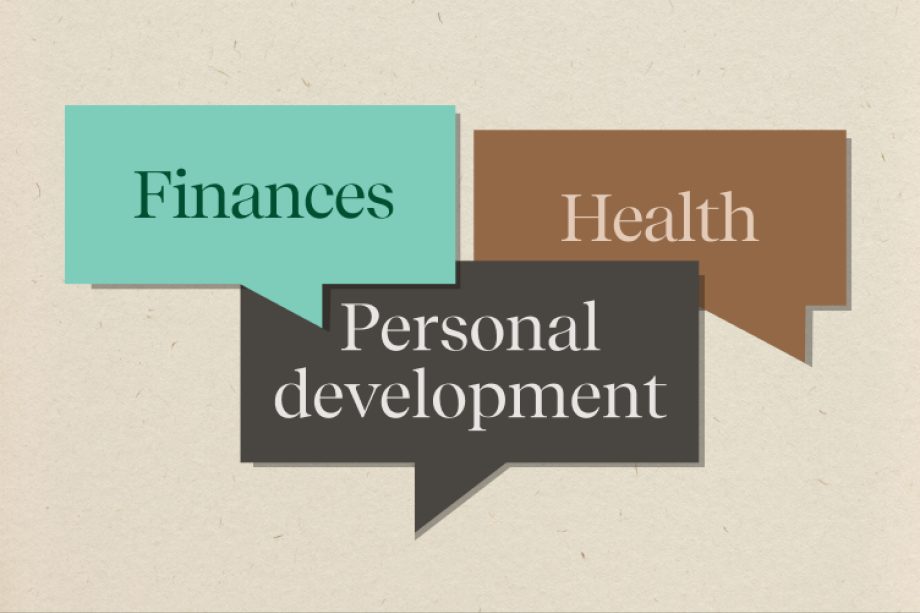Family
1 minute read
Family governance: A new way for adult siblings to connect


When children are home from college for the holidays, it’s a good time to make sure you and they have taken the right precautions to support them now that, under the law, they are adults.
The moment your children turn 18 years old in the United States, they are able to buy or sell property, enter into binding contracts, vote and get married.1
At that same time, you no longer have the right to:
If you want to still be able to help them personally, academically and financially, they’ll need to put in place certain legal documents—probably with your encouragement to do so. So speak with each of your children (even before they turn 18 and certainly if they are older). And after the two of you have decided what would work best, you might want to make an appointment with your lawyer to get those documents prepared and signed.
This checklist and discussion guide are a good start.
To ensure you will be informed about your child’s medical condition, and be able to make healthcare decisions if he/she becomes incapacitated, a number of documents are needed:
1. Healthcare proxies. We strongly recommend that all adults sign a healthcare proxy identifying whom they want to make healthcare decisions for them should they become incapacitated.
Be very sure that the healthcare proxy each child signs is effective for the states in which he/ she is living. (Time can be critical when accidents occur and life-and-death decisions must be made.) He/she should sign more than one, keep at least one original and let you keep at least another; the drafting attorney should keep a third.
Parents as well as children should have healthcare proxies in place. You might, as a family, discuss who should be primarily and secondarily responsible for whom. States all have a standard form of healthcare proxy, and an attorney can prepare these relatively quickly. For a child at school, the school itself typically would have a standard form that could be used as a model.
2. HIPPA form. 2This is the form that authorizes medical professionals to disclose a patient’s health information to an individual (or individuals) the patient has designated.
If your children do not sign this form, college authorities won’t be able to share any information about their conditions with you.
We believe no young adult should go off to college without signing this form and identifying at least one trusted elder who would be privy to their medical information.
3. Student health center forms. Sometimes the HIPAA form will not be enough. A college’s student health center might require that the student sign a separate form unique to that health center. Be sure to check with the college and discuss with your child.
4. Living will. All adults should have a living will, which indicates what medical treatment they want should they fall into a “persistent vegetative state.”
No one likes contemplating such a situation, and it’s statistically unlikely to happen to a young adult. But if a child does not provide this direction, medical professionals will be obligated to take every measure possible to keep them alive, even if doing so would be contrary to the child’s wishes.
Even though your newly minted adult children are legally independent and still very young, there are key legal documents normally associated with older people that we think they, and you, should strongly consider putting place:
5. Durable power of attorney. There are many reasons why your children should sign a durable power of attorney giving you the legal ability to make financial decisions on their behalf. They could simply be busy at college. They might travel off the grid for a time. There could be an accident. Meanwhile, debts and possibly rent still need to be paid. And, if there are investments often newly in their names, decisions about how to manage them certainly would have to be made.
Reassure your children that signing a power of attorney is simply creating a safeguard. They are not relinquishing their independence, as they have the right to revoke, at any time, this power of attorney (or any of these other documents, for that matter). If a child wants you to manage his or her investments while he/she is at school, we recommend that you schedule time to share with that child the thinking behind any decisions you’ve made.
6. Last will and testament. Without a will, all assets in your children’s names would go to their parents. Speak to them about whether they would prefer that some of their holdings go instead to their siblings, other family members or charity. Depending on the level of assets in their names and the family’s financial picture, such a will might make a lot of sense.
You also might want to make sure you are on, and get regular information about, any credit cards, cell phones and bank accounts they have so that you can help them with budgeting, spending and savings.
Even if you are footing the tuition and related bills for your children’s college experience, you might not be informed about how they are faring at school.
7.Student record form. Encourage them to sign a release that will enable the college to share with you all of their education records, including grades, financial aid eligibility information and disciplinary records.
And even though they are off at school focusing on personal and intellectual development, you might want to inculcate a sense of responsibility beyond their own needs and concerns by involving them in your family’s investment decisions, business and/or philanthropy.
Speak with your J.P. Morgan team about these seven documents and the myriad other ways you might help your children grow into their responsibilities as an adult.
We can help you navigate a complex financial landscape. Reach out today to learn how.
Contact usLEARN MORE About Our Firm and Investment Professionals Through FINRA BrokerCheck
To learn more about J.P. Morgan’s investment business, including our accounts, products and services, as well as our relationship with you, please review our J.P. Morgan Securities LLC Form CRS and Guide to Investment Services and Brokerage Products.
JPMorgan Chase Bank, N.A. and its affiliates (collectively "JPMCB") offer investment products, which may include bank-managed accounts and custody, as part of its trust and fiduciary services. Other investment products and services, such as brokerage and advisory accounts, are offered through J.P. Morgan Securities LLC ("JPMS"), a member of FINRA and SIPC. Insurance products are made available through Chase Insurance Agency, Inc. (CIA), a licensed insurance agency, doing business as Chase Insurance Agency Services, Inc. in Florida. JPMCB, JPMS and CIA are affiliated companies under the common control of JPMorgan Chase & Co. Products not available in all states.
Please read the Legal Disclaimer for J.P. Morgan Private Bank regional affiliates and other important information in conjunction with these pages.
Bank deposit products, such as checking, savings and bank lending and related services are offered by JPMorgan Chase Bank, N.A. Member FDIC.
Not a commitment to lend. All extensions of credit are subject to credit approval.
